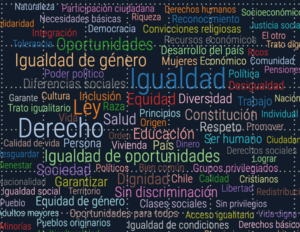
Working Paper
Inequality in Chile: Perceptions and Patterns
Dic 9th 2022
This paper undertakes an analysis of the views of Chilean citizens on inequality a...
Read More
A link to the full paper is here
Abstract: This paper undertakes an analysis of the views of Chilean citizens on inequality and a synthesis of measures of dimensions of inequality. Chile is very unequal by international standards on many dimensions. Despite its longer-term reputation for effective economic and social policy, it is at the high end of inequalities even by Latin American standards. According to the World Inequality Report (Chancel et al., 2022) the top 1% of Chileans earn a quarter of total (pre-tax) income and own almost 50% of total wealth in the country. Inequality has persisted since the 1990 transition to democracy alongside periods of rapid growth, a dramatic reduction in extreme poverty, an equally dramatic expansion in tertiary education and increased provisioning of other services. These impressive achievements have produced a new middle class, and large numbers of young adults who are the first generation to get higher education, with very different aspirations for work and participation. This paper undertakes an analysis of citizen views on inequality and a synthesis of actual patterns of inequality in Chile. It is intended as an input into ongoing debates around the relationship between causes of inequality and options for policy design.
Michael Walton, Director of Economic Development, Research, and Strategy at Imago Global Grassroots, presented this paper “Inequality in Chile: perceptions and implications” at the event Inequality and Poverty in Chile: Urgent Challenges organized by Espacio Público in Chile. You can access the conference in spanish here and the slide deck here.